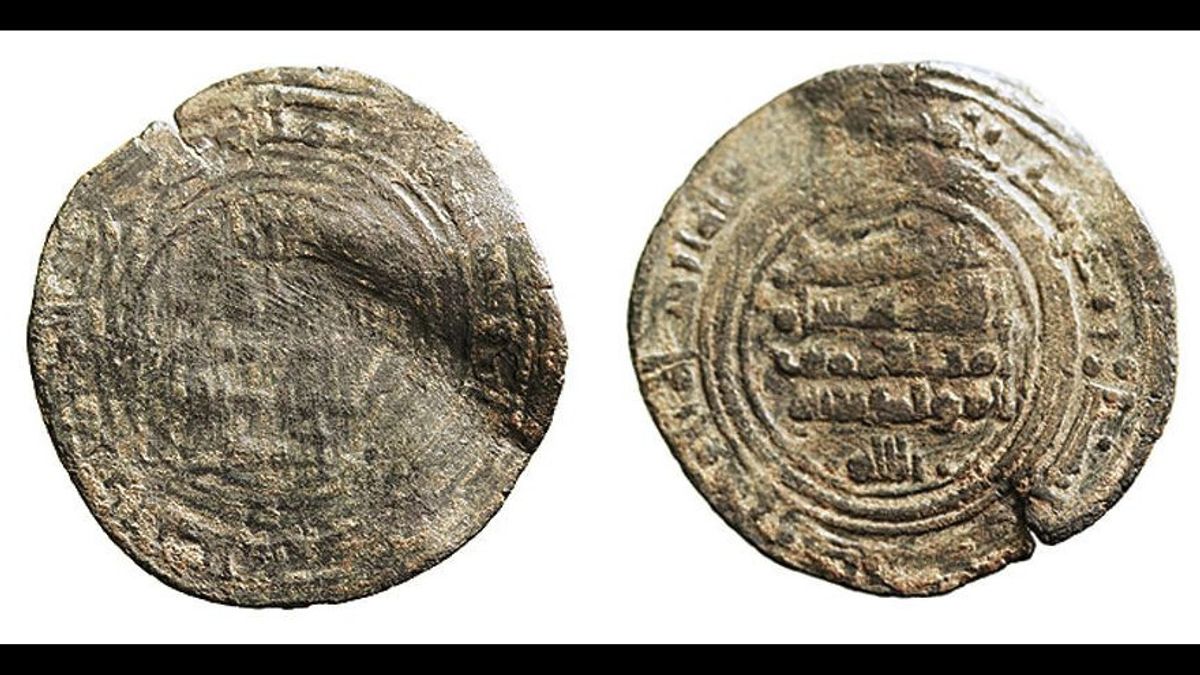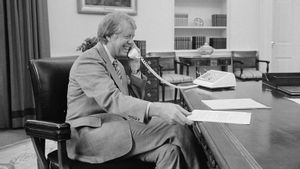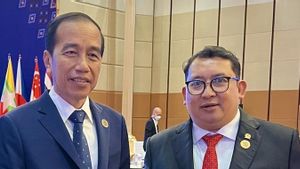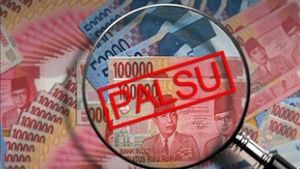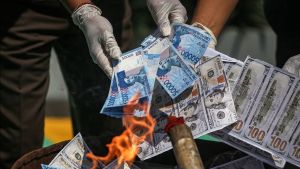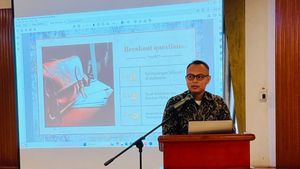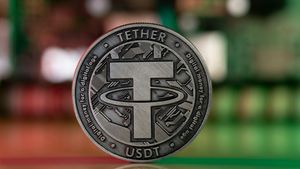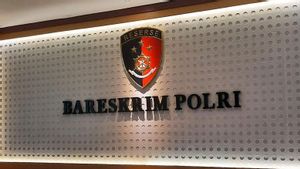JAKARTA - Dirham coins are not new in Indonesia. Deureuham or dirhams have been present in the archipelago since the 13th century. The arrival of traders from the Arabian peninsula became the origin. In fact, the Sultanate of Samudera Pasai (Aceh) has recognized the dirham as an official medium of exchange, both domestically and internationally. In that frame the dirham later became a symbol of Islamic unity. Mainly as a symbol of how strong Islam is in the archipelago.
Historically, dirham comes from the Greek, "drachma" which means silver mold. However, the term developed in Indonesia. The Big Indonesian Dictionary (KBBI) records the meaning of the dirham as gold or silver currency.
This evidence is supported by many dirham coins found in Indonesia in the past that were made of gold. And the Sultanate of Samudera Pasai became the main actor perpetuating the use of dirhams in economic activity.
As an advanced trading airport, Samudera Pasai issued currency as a means of payment. One of them that is made of gold is dirham money. This dirham money shows the history of the kings of Samudera Pasai. Because, in that currency, the names of the kings who once ruled the most famous Islamic Kingdom in the archipelago were clearly written.
Quoted by Salman Alrosyid in the book The Development of Money in Indonesian History (2018), dirhams were first printed during the reign of Sultan Muhammad who was entitled Malik At-Tahir (1297-1326), to be precise 1297. The making of dirhams deliberately followed the Middle Eastern nations who used their currency. money is the same.
Dirham money also has a different weight, according to nominal. Usually there are dirhams with a gold weight of 0.30 grams to 0.60 grams. The money also bears the name of the sultan in power. Then, written the hijriyah year using Arabic numerals or jawi letters which have a size of 6-11 millimeters. Therefore, the presence of dirhams shows the strong influence of Arab traders and the influence of the development of Islam in the kingdom.

"Currency which is also a cultural heritage object is the gold currency (dirham) which was found from Samudera Pasai, Aceh. The results of HKJ Cowan's research regarding the gold currency can add to the historical information of the Pasai Ocean Kingdom that has been put forward by Moquette and other experts. The currency found contained the names of Sultan Alauddin, Sultan Mansur Malik al-Zahir, Sultan Abu Zaid, and Sultan Abdullah, "said Uka Tjandrasasmita in the book Archeology of Islam Nusantara (2009).
Uka Tjandrasasmita added, in early 1973, in the excavation of Aceh's historical sites, eleven dirhams were also found. Among the coins found, there was money bearing the name Muhammad Malik Az-Zahir, Sultah Ahmad, Sultan Abdullah. All of them were the sultans of Samudera Pasai in the 14th and 15th centuries.
All this evidence contains a narrative that Samudera Pasai is very famous for its commerce and shipping. This has also been strengthened by the strategic position of Samudera Pasai which has been the trade traffic since a long time ago.
At that time, Samudera Pasai was estimated to export pepper as the main commodity, in addition to other commodities, such as silk, camphor and gold imported from the interior. Apart from Samudera Pasai, other kingdoms in the archipelago that also adopted dirhams as a medium of exchange were the Sultanates of Palembang, Jenggala, Cirebon, and so on.
The empowerment of the dirham
As reported by Tempo Magazine entitled The Return of the Girincing Dinar (2002), on its way, the dirham has become a universal currency that cannot be claimed as the currency of a particular country. The Dirham does not require endorsement from any authority. This condition is different from flat money, paper money which relies on its value on the trust of state authorities.
Meanwhile, dirhams are real money that is guaranteed by itself as a precious metal. Dirhams are a medium of exchange as well as commercial goods. So, as long as people agree to exchange commodities - in this case dirhams - with other objects of equal value, transactions will occur.
From my search results, there are already several Muamalah markets in several regions of the archipelago. As in Yogyakarta, Bekasi and Depok-West Java, the driving force is Zaim Zaidi (suspected of being HTI) who is against the current financial system which he considers usury capitalism. pic.twitter.com/MA6wraRrVg
- Muslim Youth (@Pencerah__) January 28, 2021
"The only thing that can hinder it is criminalization, that is, if a country bans printing and using it, an action that is almost impossible to do. Apart from the argument of Islamic sharia, which defines the dinar and dirham as: currency that is blessed by Allah, the political economy argument on the importance of implementing a gold and silver money system for justice and world economic stability is actually quite convincing. This two-coin system was once very stable for hundreds of years, ”the report states.
As a result, dirhams were so powerful if they continued to be used. Compared to the current void linked to the United States dollar. In which case, empty money continues to be maintained because it benefits creditor countries, aka money holders. They reap the benefits of poor, debt-ridden countries.
[/ read_more]
Investment tool
In Indonesia, the circulation of dirhams resumed in the early 2000s. Initially the dinar and dirham were only kept as part of an investment. However, along with the development of Islamic economic studies and practices, a discourse emerged that directed the coins to become a medium of exchange again. Because in sharia the legal instruments of exchange are only gold and silver.
Fery Firmansyah, in an article in Tempo Magazine entitled The Transaction Model of the Prophets (2011), confirmed the rampant buying and selling of dirhams. However, it is precisely the use of dirhams for investment, even though several events since 2009 have used dirhams as a medium of exchange.
To that end, the demand for dirhams and dinars - the old gold coins - increased. Estimated circulation of the dinar at that time - in 2011 - had reached 70 thousand pieces. While the dirham reached 10 thousand pieces.
"The growth is relatively stable. Within a year, the average demand is 10 thousand pieces. However, only half of the coins used are used for sale and purchase, because some people still use them as investment tools, ”said Director of Wakala Induk Nusantara, quoted by Fery Firmansyah.
[/ read_more]
The English, Chinese, Japanese, Arabic, and French versions are automatically generated by the AI. So there may still be inaccuracies in translating, please always see Indonesian as our main language. (system supported by DigitalSiber.id)
